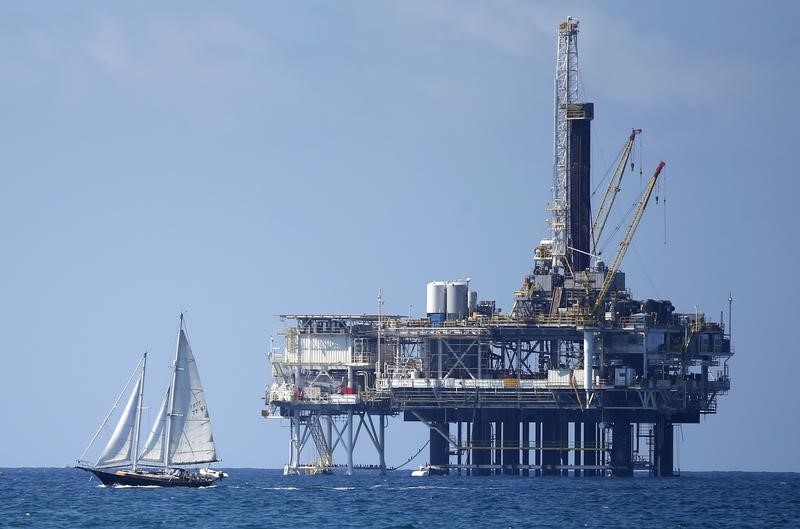By Gloria Dickie
DUBAI (Reuters) – What if the world could quickly reduce climate change emissions without having to build so much new renewable energy capacity?
That’s exactly what some experts say needs to happen, by improving the efficiency of appliances and electricity grids by, for example, plugging leaks and stopping the so-called “vampire load” of appliances that draw power from sockets even when they’re turned off.
By lowering the amount of energy needed to perform the same tasks, the world could burn less fossil fuels and spend less on expanding solar or wind capacity.
“We not only need to change the way we generate electricity, we also need to change the way we use it,” said Larissa Gross of the climate think tank E3G.
At least 118 countries at the COP28 climate summit in Dubai backed the pledge to improve energy efficiency by 4% every year until 2030. That would be a doubling of the 2% improvement in efficiency by 2022.
HOW CAN ENERGY BECOME MORE EFFICIENT?
The International Energy Agency (IEA) has called efficiency the ‘first fuel’ of the energy transition and one of the fastest and most cost-effective ways to reduce greenhouse gas emissions.
In its simplest form, energy efficiency can simply mean using appliances, technology or electronics that are designed to use less energy, such as heat pumps or LED lighting.
On a larger scale, buildings can be designed with better insulation to reduce the need for air conditioning or heating. Factories or cities can improve wiring to prevent leaks.
Remove ads
.
As more industries, including transportation, seek to get their energy from the electrical grid, rather than by burning fossil fuels, demands on the electrical grid will increase sharply.
“We need to make energy efficiency as sexy as wind turbines,” said Sofie Irgens, head of the climate solutions accelerator at Danish multinational Danfoss, which produces heating and cooling products.
Government regulation can also help, for example by requiring minimum energy performance standards for appliances, vehicles or production.
HOW MUCH ENERGY AND MONEY CAN BE SAVED?
Doubling global average efficiency could deliver half of all necessary emissions reductions by 2030, according to the IEA’s Net Zero Roadmap.
For the European Union and Britain, this would mean a total reduction in CO2 emissions of 40 million tonnes per year by 2030. That translates into annual cost savings of about 10.5 billion euros ($11.43 billion), Danfoss estimates in a November 2023 white paper.
According to an October 2023 joint industry report from the Energy Efficiency Movement, industries worldwide could save $437 billion per year by 2030 if they improve energy efficiency.
WHAT OFFERS THE GREATEST ENERGY SAVINGS?
Switching to electric vehicles or heat pumps can deliver significant energy savings if you connect to networks that increasingly use renewable energy sources.
Electric vehicles also waste less of their energy reserves than combustion engine vehicles that run on gasoline.
The U.S. Department of Energy estimates that electric cars currently use 77% of their battery energy for energy at the wheels. Gasoline vehicles can only get about 12% to 30% of the energy from gas in their tanks.
Remove ads
.
Heat pumps can be up to five times more efficient than gas boilers, the IEA says.
In developing countries, including India and parts of Africa, the same logic applies to switching to electric stoves instead of burning cow dung or firewood for cooking.
“Electric cooking is enormously more efficient than cooking on biomass,” says energy researcher Nick Eyre from the University of Oxford.
IS PROGRESS BEING MADE?
Since 2020, countries have mobilized around US$1 trillion for energy efficiency projects, from building renovations to public transport and support for electric vehicles.
As a result, energy efficiency globally improved by about 1.3% this year compared to last year, slower than the 2% improvement in 2022, largely due to rising energy demand, according to the company’s annual Energy Efficiency report the IEA.
In the US, energy efficiency will exceed the global average efficiency improvement rate by 4% this year, with $86 billion allocated for this purpose under the Inflation Reduction Act.
And the European Union saw energy used 5% more efficiently this year, after an 8% improvement last year, partly thanks to milder winters.
Germany, Sweden and the Netherlands together saw heat pump sales increase by 75% in the first half of 2023, compared to the same period last year.
The IEA has also highlighted opportunities in developing countries with growing cities, which can better plan for new energy-efficient buildings as their economies grow.
___
For daily in-depth coverage of COP28 in your inbox, sign up for Reuters Sustainable Switch (NYSE:) newsletter here.
Remove ads
.
($1 = 0.9190 euros)


